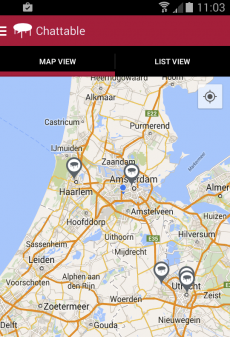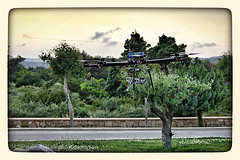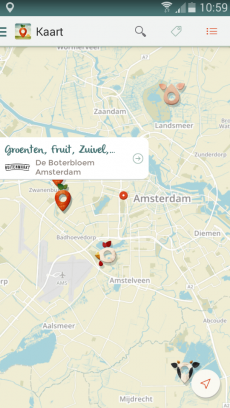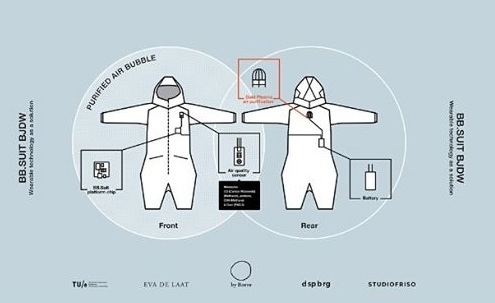At first glance new Dutch app Chattable looks like a smart combination of many other apps. The idea of who is eating where seems interesting if ever you’re somewhere and you don’t want to dine alone. You can also see where someone is from because not being able to communicate would make for some pretty awkward dining. This app does set people up for awkward dining though, so brace yourselves.
According to the video, Chattable tables at restaurants have a special stand on them, which probably makes it easier for people to find each other, but does tell the world you couldn’t find someone to dine with. Again, that’s uncomfortable, but maybe it will turn out to be cool like sitting at the Stammtisch table in a German-speaking country, where the meeting table is marked with a decorative sign.
The developer claims it’s not a dating app because Chattable doesn’t know the age and gender of your dining partners. “You only need a common language,” which is true in an ideal world, but humans don’t function that way. Straight men will try and find pretty young women and straight women will try and find decent available men. And I imagine the LBGT crowd will be weary and probably should be. All of that in principle is not Chattable’s problem, but will always be an issue.
The Internet and all kinds of apps have been used for sex and dating from the get go. Nobody saw the recent introduction of Uber as a great app for raping women, so I think developers should be way more careful telling people what they think their app should be used for.
I enjoy eating alone abroad because it’s my moment to enjoy new surroundings without having to deal with someone else taking away from the experience. When I dine with someone else, it’s the opposite: I want to enjoy my company and tune out the background. If you need an app to never eat alone again and aren’t worried about a possible creepy encounter then by all means, it could be fun and only time will tell if it’s a good idea.
(Link: www.bright.nl)






 Amsterdam-based entrepreneur Martijn Wismeijer had two NFC chips injected into his hands earlier this month,
Amsterdam-based entrepreneur Martijn Wismeijer had two NFC chips injected into his hands earlier this month, 
 The business court of The Hague has determined that Dutch Rail can abolish paper train tickets even though the law says a traveller has a right to an objective proof of the right to travel.
The business court of The Hague has determined that Dutch Rail can abolish paper train tickets even though the law says a traveller has a right to an objective proof of the right to travel.
 I went to Interference last weekend, a hacker convention run by anarchists in a former squat called Binnenpret. Most Dutch people know the part of the complex called OCCII, a music venue on Amstelveenseweg.
I went to Interference last weekend, a hacker convention run by anarchists in a former squat called Binnenpret. Most Dutch people know the part of the complex called OCCII, a music venue on Amstelveenseweg.